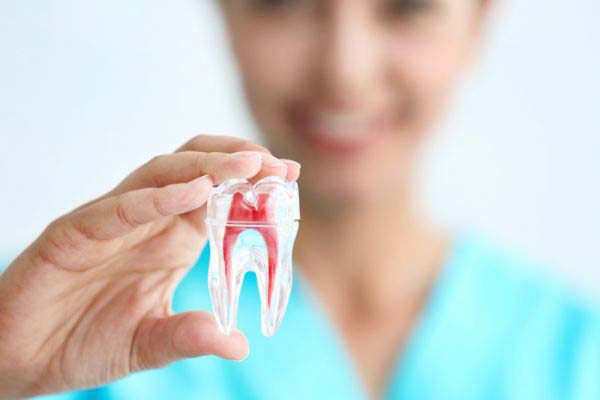Gum Disease: What Causes Inflamed Gums?

While gum disease is the most prevalent cause of gum inflammation, incorrect brushing and flossing, smoking, chemotherapy, hormonal changes, and irritation caused by oral devices may all contribute. Continue reading to learn more about the causes of gum inflammation and how to deal with it.
Does gum disease cause gum inflammation?
Inflamed gums are a common problem. Two forms of gum disease affect individuals, depending on the degree of gum inflammation:
Gingivitis
Gingivitis is a mild type of gum disease that affects millions of people every year. The most common sign of this condition is inflamed gums that bleed when brushing or flossing. While gingivitis is not a major threat to oral health, treatment is necessary to prevent it from worsening.
Periodontitis
If gingivitis is not treated promptly, it may develop into periodontitis, a more dangerous form of gum disease. Inflamed gums are more painful at this stage, and the teeth may begin to loosen. The reason is that periodontitis has begun to wreak havoc on the gum tissue and bone structure that supports the tooth and keeps it stable. It is essential to treat inflamed gums and periodontitis to maintain proper dental health in the long run.
It is easier to treat inflamed gums and halt the progression of early gum disease. The following are steps patients can take to treat inflamed gums and restore their oral health:
Good brushing is important
Brush gently to prevent harming the tissue that surrounds the teeth, which may cause gum inflammation. Additionally, dental professionals advocate brushing with a soft, nylon-bristle brush to avoid gum damage. Finally, patients should consider getting toothpaste for sensitive teeth.
Floss properly
Flossing eliminates food particles that get trapped between your teeth, which may lead to plaque and tartar build-up, resulting in inflamed gums and gum disease. However, one must floss gently to prevent inflamed gums. Instead of yanking the floss between the teeth and risking gum damage, gently slip it between them. Some bleeding might occur during the process, but this should not be a deterrent.
Rinse the mouth
Rinsing the mouth aids the removal of food particles and debris that contribute to plaque formation and may result in gum disease. Therefore, when it is not feasible to brush after a meal, rinse the mouth, preferably with a mouthwash developed specifically for the gums. Antimicrobial mouthwashes aid in neutralizing plaque bacteria and stopping some of the early symptoms of gum disease.
Improve nutritional choices
Consuming a well-balanced diet may help maintain optimal gum health. Consume enough vitamin C and calcium to help prevent inflamed gums.
De-stress
Stress may affect hormone levels, notably the stress hormone cortisol. Cortisol may cause inflammation and, in certain cases, swollen gums. Make every effort to de-stress for your overall health as well as your oral health.
The bottom line
If you have inflamed gums, make an appointment with a dentist to discuss treatment options. The dental professional can assist you in determining the source of the inflammation and guide you toward improved gum health. The good news is that you do not have to live with inflamed gums or gum disease since several treatment options are available.
Request an appointment here: https://franklincosmeticdentist.com or call Cedar Lane Family Dentistry at (317) 736-7476 for an appointment in our Franklin office.
Check out what others are saying about our services on Yelp: Gum Disease in Franklin, IN.
Related Posts
Bleeding gums are a symptom of poor gum health. Since you may not experience pain or discomfort, you may not think it is serious. In many, bleeding gums indicate gum disease. If left untreated, gum disease can lead to serious health complications.Gum disease develops when plaque and tartar buildup along the gumline causes inflammation. Over…
Although the gums may bleed occasionally from rough brushing or flossing too vigorously, frequent bleeding gums are a sign that something is wrong. Dental issues are the most common cause of this bleeding, often due to proper oral hygiene not being practiced. Depending on the cause of the bleeding, there are certain treatments and preventative…
Individuals who experience bleeding gums while brushing should not necessarily be overly alarmed, because it could be caused by temporary irritation or using a brush with too-hard bristles. However, when the gums frequently bleed during brushing, it may be a sign of early gum disease, known as gingivitis. Understanding the link between this bleeding and…
Though not necessarily abnormal, bleeding gums should prompt further investigation. Bleeding from the gums can have several causes, some of which are easily remedied and others that may require dental care to correct. If you notice blood after brushing or flossing, or if the gums bleed randomly throughout the day, look into the various causes…
